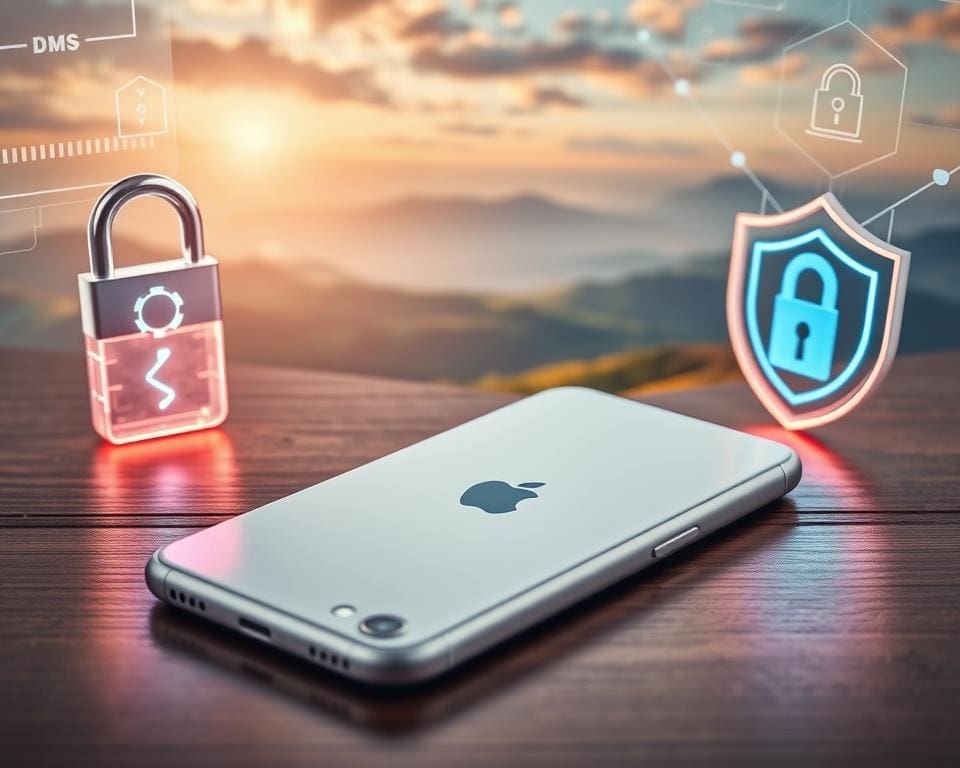In today’s digital landscape, Data Protection has never been more crucial, especially for iPhone users. With smartphones becoming repositories for sensitive information, it is vital to implement effective mobile device security measures. This article presents key iPhone security tips that can help safeguard your personal data and mitigate the risks of data breaches. Understanding how hackers operate highlights the need for diligent security practices, ensuring that your mobile experience remains safe and secure. By embracing these proactive strategies, you can protect your most important digital assets.
Understanding Mobile Device Security
In an era where smartphones have become indispensable tools for communication and information, the concept of Mobile Device Security emerges as a critical necessity. Protecting personal data on devices, especially iPhones, is paramount due to the sensitive nature of the information they house. Cybersecurity Measures play a vital role in ensuring that users maintain control over their data and privacy. Awareness of potential threats enhances your ability to secure your mobile environment effectively.
Importance of Mobile Device Security
Mobile devices serve as gateways to personal and professional data. Their compact design and constant connectivity create opportunities for both positive interactions and significant risks. The importance of Mobile Device Security cannot be overstated, as cybercriminals increasingly target smartphones to exploit vulnerabilities. By adopting proactive measures, users can guard against intrusive threats while ensuring their information remains confidential and intact.
Common Threats to Your iPhone
Understanding the common threats faced by iPhone users aids in the implementation of effective cybersecurity strategies. Some prevalent issues include:
- Phishing Attacks: Deceptive emails and messages designed to trick users into revealing personal information.
- Malware: Malicious software targeting vulnerabilities, potentially compromising your device’s performance and security.
- Unsecured Wi-Fi Networks: Public networks can expose personal data to hackers, posing significant risks when accessing sensitive accounts.
Awareness of these threats empowers users to adopt essential iPhone Security Tips, ensuring any potential intrusion is mitigated effectively.

iPhone Security Tips: Protect Your Data
Protecting your data is paramount in today’s digital landscape. Implementing iPhone security tips can significantly enhance your device’s safety. Knowledge of Secure Data Practices is essential for everyone seeking to safeguard their personal information. Below are effective strategies that can help in fortifying your iPhone’s security.
Enable Two-Factor Authentication
One of the most effective ways to secure your device is by enabling Two-Factor Authentication (2FA). This feature adds an extra layer of security by requiring not only your password but also a second form of identification. Even if your password is compromised, 2FA helps prevent unauthorised access, making it a crucial part of your iOS Security Guidelines.
Regular Software Updates and Patches
Staying current with software updates is vital for maintaining device security. Apple regularly releases updates that not only improve functionality but also address vulnerabilities in the iOS system. By installing these updates promptly, you reinforce your iPhone’s defences and implement best practices for Secure Data Practices. Ignoring these updates can expose your device to threats.
Optimising Your iPhone Privacy Settings
To enhance your data protection effectively, it is essential to optimise your iPhone privacy settings. By adjusting these settings, users gain control over app permissions and manage location services, ultimately fortifying smartphone security features. This process not only limits unnecessary data sharing but also ensures that your personal information remains secure.
Adjust App Permissions
Every application on your iPhone requests permissions to access various features such as your contacts, camera, and microphone. Adjusting these app permissions is a crucial step in maintaining your privacy. Follow these steps to ensure only necessary applications have access:
- Go to Settings and tap on Privacy & Security.
- Select the specific category, such as Contacts or Photos.
- Review the list of apps and toggle permissions according to your preference.
By meticulously managing app permissions, you strengthen your iPhone privacy settings and bolster your overall data protection.
Location Services Management
Location services can enhance the functionality of your applications but can also lead to privacy concerns if not managed properly. To ensure your location information is shared only with trusted apps, take the following steps:
- Navigate to Settings and find Privacy & Security.
- Tap on Location Services to view all apps that access your location.
- Select each app to determine whether it needs access to your location continuously, while in use, or not at all.
By effectively managing location services, you enhance your smartphone security features and protect your sensitive location data from unwarranted access.
Implementing Secure Data Practices
To truly fortify your iPhone against potential threats, embracing Secure Data Practices is paramount. Central to this strategy is the establishment of strong passwords and complex passcodes, which serve as the first line of defence against unauthorised access. It’s crucial to create unique security codes that incorporate a mix of letters, numbers, and special characters. This approach significantly enhances your iPhone security profile, making it much harder for anyone to breach your personal information.
Using Strong Passwords and Passcodes
Incorporating strong passwords into your daily routine not only protects your iPhone but also your online identities. Avoid common phrases and predictable combinations; instead, consider using a password manager that generates and stores complex passwords for various accounts. Additionally, iPhone Security Tips include regularly updating these credentials, ensuring that your personal data remains well-guarded as threats evolve.
Backing Up Your Data Securely
Besides robust passwords, securing your data through regular backups is essential. Utilising iCloud for seamless and encrypted backups provides a reliable option for safeguarding your information against potential loss. Alternatively, performing physical backups can also play a crucial role in protecting your data. Ultimately, Data Encryption acts as a vital part of this process, ensuring that even if your data falls into the wrong hands, it’s rendered unreadable. By combining strong passwords with secure data backups, one can create a comprehensive strategy that not only prevents data loss but also instils confidence in your iPhone’s protective measures.








